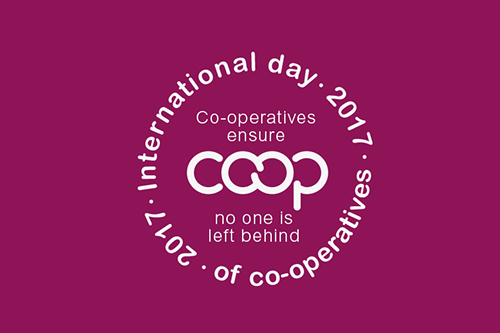This year’s International Day of Cooperatives, observed on July 1, celebrates how co-ops make sure no one is left behind. To celebrate, we rounded up some our favorite co-op and producer association stories from communities worldwide that are working together to access markets, address nutrition and keep communities together.
Here in the U.S., cities are changing and developing quickly. To make sure residents have a say in their community transformations, neighbors are coming together in co-ops to keep profits local and develop sustainably. Learn more about how co-ops are affecting gentrifying cities—including bringing healthy food access to food deserts—in the recent Cooperative Business Journal piece, “Staying Power: Preserving Local Ownership in Gentrifying Cities.”
In El Salvador, despite coffee rust devastating harvests a few years ago, coffee co-ops are reinvesting in organic and rust-resistant varieties with support from the USDA to make sure their members still have a future in the industry. Starting from scratch, these co-ops are building seedling nurseries to guarantee the quality of their coffee, and U.S. buyers are noticing.
In Guatemala, neighbors are starting community banks after training with USAID’s Cooperative Development Project to fund and build chicken coops. Lack of protein has caused malnutrition in the Western Highlands region, and access to eggs has made a big difference in the nutrition of young children. To fund these projects, neighbors are working together, and loans are being repaid from the chicken profits at a 100 percent success rates.
The 2017 International Day of Cooperatives highlights the work co-ops do to ensure no one is left behind.In Senegal and Niger, mothers are forming women’s groups to learn about nutrition for their children, water and sanitation, and growing community gardens. Working together, these community groups are impacting nutrition on a grand scale. In Senegal, villages and Debbo Galle groups working with the Feed the Future Yaajeende Project have seen stunting decrease by one third. In Niger, access to community gardens and trainings on how to integrate nutritious foods like morninga have meant over 100,000 mothers and children are addressing nutrition issues.
And in Indonesia, connecting to co-ops has meant that farmers are able to farm sustainably and have an income without destroying precious natural forests—meaning higher incomes for their families, a connection to global markets and a climate-smart solution for the region.
Communities coming together through co-ops, producer groups or other democratic groups are one way to ensure everyone has a voice and no one gets left behind. From the U.S. to around the world, the global cooperative community celebrates International Day of Cooperatives every year to highlight how together we are building an inclusive economy for all.



